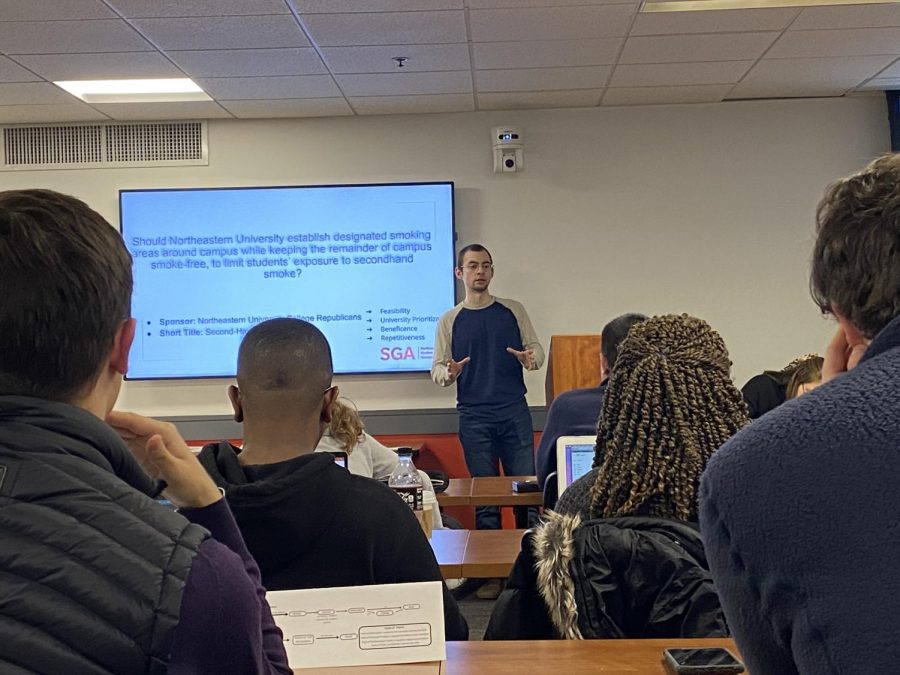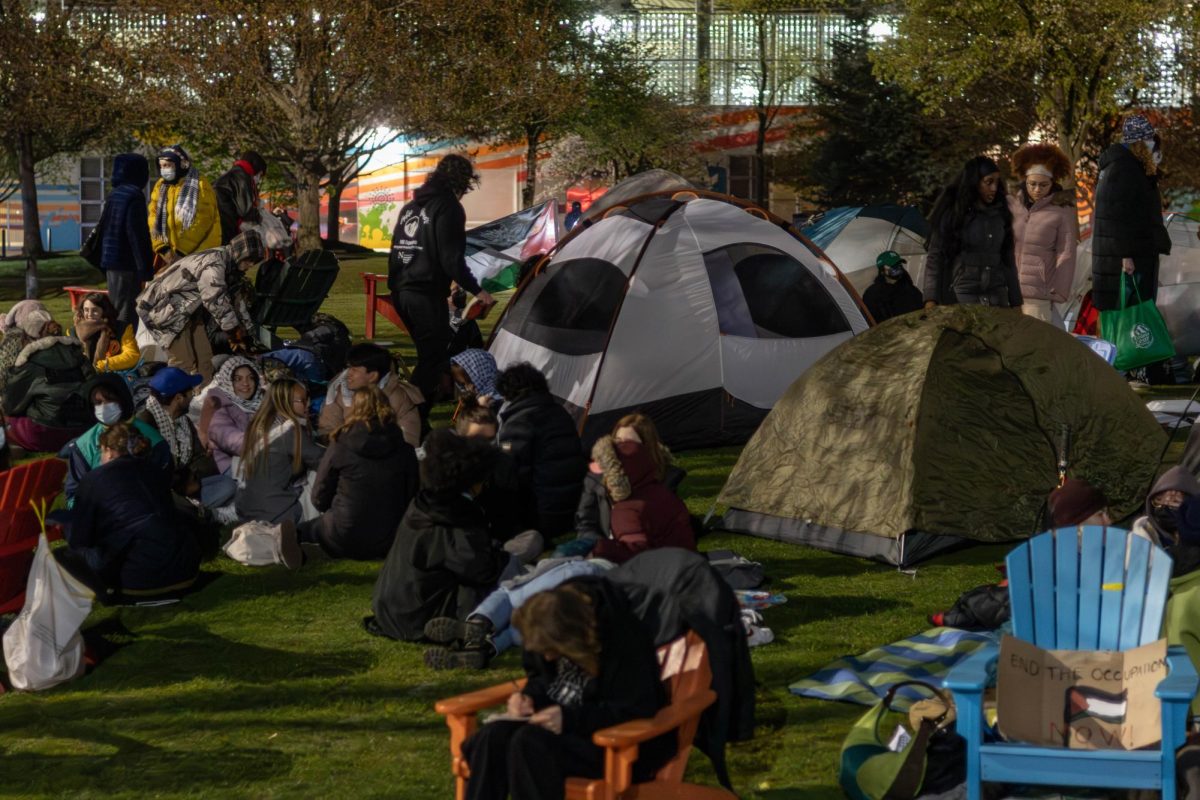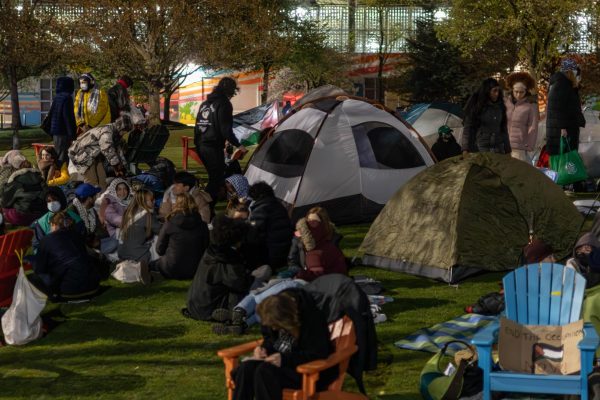Referenda approved include evening academic advising, increased ISEC access
David Nica, a fifth-year economics major and the external vice president of NUCR explains his organization’s referenda questions to SGA.
February 5, 2020
In its full-body meeting Jan. 27, the Student Government Association, or SGA, agreed upon the referenda questions for students to vote on in the March elections. Of the 16 referenda questions proposed by student organizations, SGA passed five. The questions are currently in the process of obtaining the 750 signatures from students needed in order to appear on the ballot.
Senators engaged in a lively debate on each of the referenda topics, but ultimately the ones passed were Fair OSCCR Hearings, ISEC Student Access, FOIA NUPD, PILOT and Evening Academic Advising. Of these, the first three were sponsored by Northeastern’s College Republicans, or NUCR, and the other two were sponsored by the Roosevelt Network at Northeastern University.
Both Fair OSCCR Hearings and FOIA NUPD were referenda questions last year, but originally did not pass. The questions were decided through rank-choice voting. When voting on which referenda questions to choose, senators were reminded to consider feasibility, university priority, beneficence and repetitiveness.
David Nica, a fifth-year economics major and the external vice president of NUCR, explained why his organization was prompted to propose referenda questions in the first place.
“We were inspired as an organization by the vast disparity between the demands of the student body and the very real unmet needs [of students] and the university’s inaction, stonewalling, the administration’s lack of engagement,” Nica said.
Nica added that SGA has been extremely helpful throughout the process, but argued that many students need to become more aware that the process exists and is available to them.
“A lot of people don’t know [SGA] exists. A lot of people don’t know the referendum process exists,” Nica said. “I know the referendum process exists because my club’s historically done it. If I wasn’t in a club, I probably would not have ever heard of this.”
Certain questions such as the Payment in Lieu of Taxes, or PILOT, senators argued to be too confusing for students to understand, but ended up passing and are still expected to be on the ballot in March. Because the university, as a nonprofit, does not pay taxes to the city of Boston, this proposal argued that Northeastern should make a payment to the city to help support public services.
“I do understand what the referendum is trying to achieve, I don’t think that this question is immediately understandable to people just reading it,” said Chief of Staff Casey Buttke during the Jan. 16 Cabinet vetting meeting. “I also recognize that that is not one of the standards that we are vetting it on, but that was just my immediate thought process.”
Other referenda questions proposed to senators covered a variety of different issues. Two questions involved increasing the supply and access of menstrual hygiene products in women’s and gender-neutral bathrooms. Other ideas included bringing therapy dogs to campus weekly, enforcing tuition guardrails that would cap university tuition from increasing and installing sunscreen dispensers on campus. However, none of these referenda received enough votes to pass.
An especially controversial referenda question that failed was proposed by Cruelty-Free Northeastern, in which they argued for reducing the amount of red and processed meat served in the dining hall and expanding options available for vegetarians and vegans, citing that it would improve the environment and the health of students.
“As someone extremely interested in this topic, all of this seems like words. I want action,” said Neal Jiwnani, a second-year biology major and representative from Cruelty-Free Northeastern during the discussion of the referendum question.
After a five-hour meeting filled with discussion and debate, senators were dismissed. President of NUCR and second-year political science major Benjamin Smith said he greatly respected the senators’ commitment and determination.
“I’m actually impressed by how long the senators actually speak and debate,” Smith said. “I’m very happy that there’s this debate going on, especially in the idea of, you know, what should be put on the [ballot] or just be written legislation and passed … At the end of the day, all of these affect every student on campus.”
Read all the referenda questions discussed at the meeting here.


















